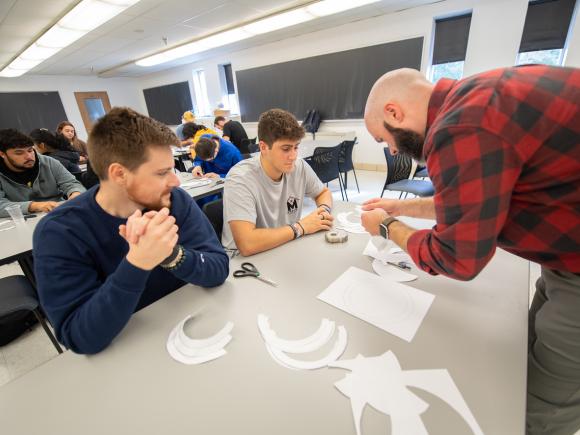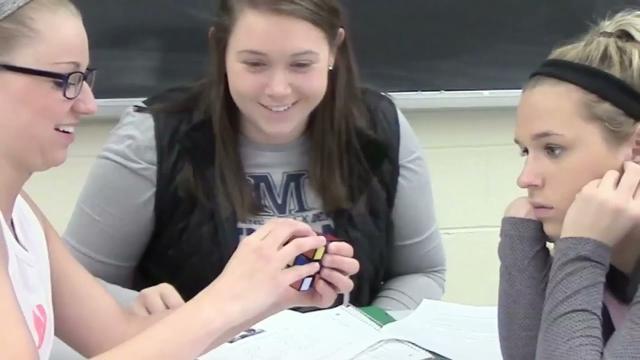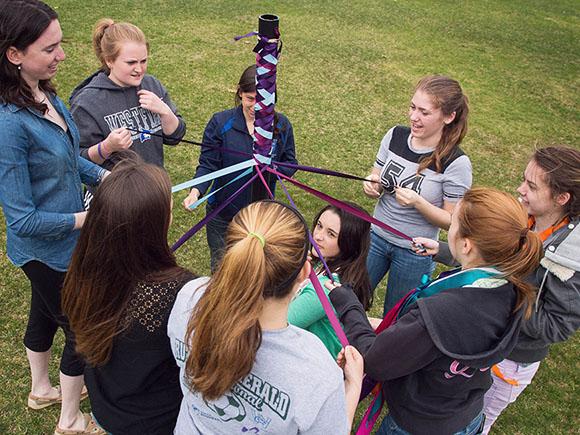
The Advanced Mathematics for Elementary Education major is an excellent choice for students seeking licensure in Elementary or Special Education. You’ll earn a strong credential in elementary mathematics education, which can be a big help in establishing your career as an elementary mathematics specialist (EMS).
Students in this major must simultaneously be enrolled in either the Elementary Education with Licensure (1–6), B.S.E. program or the Special Education: Moderate Disabilities with Licensure (PreK–8), B.S.E. program.











